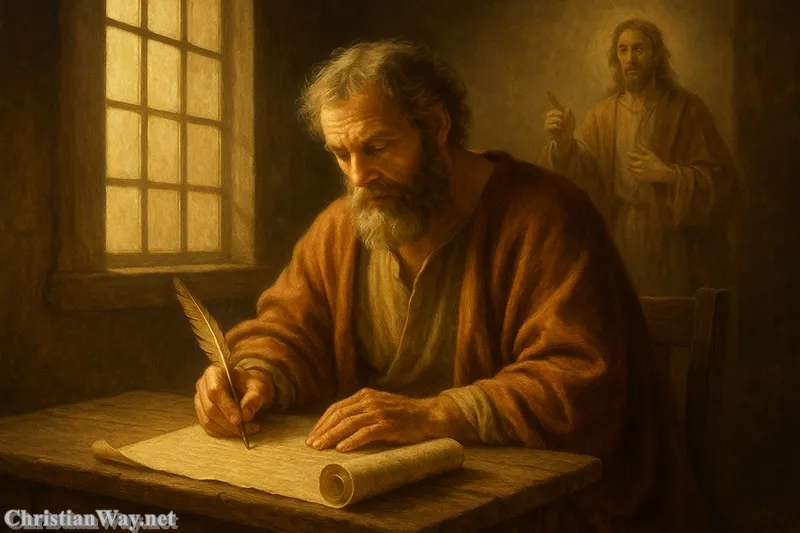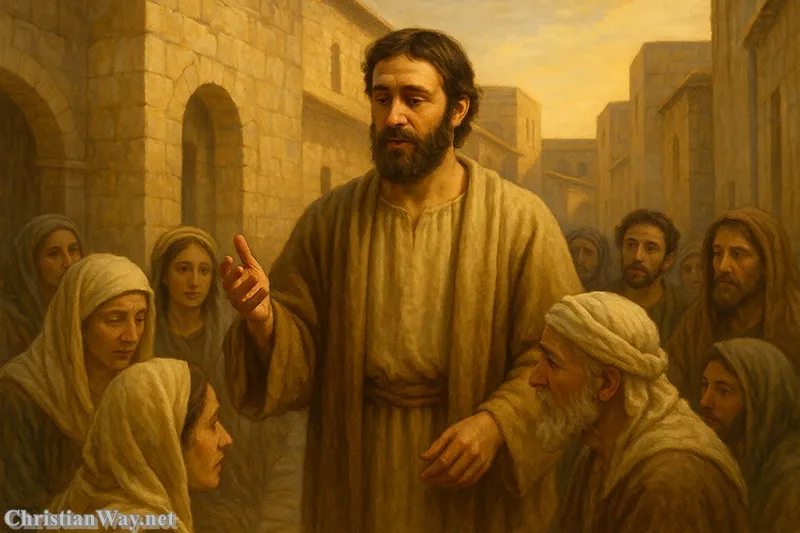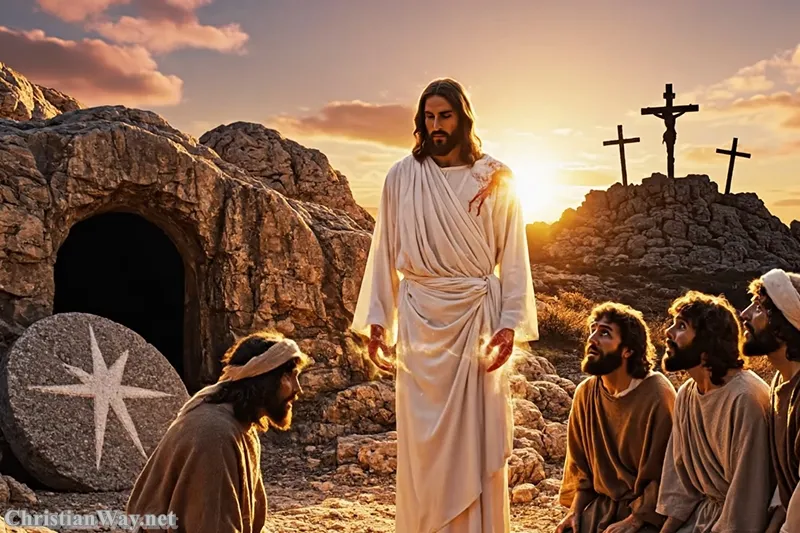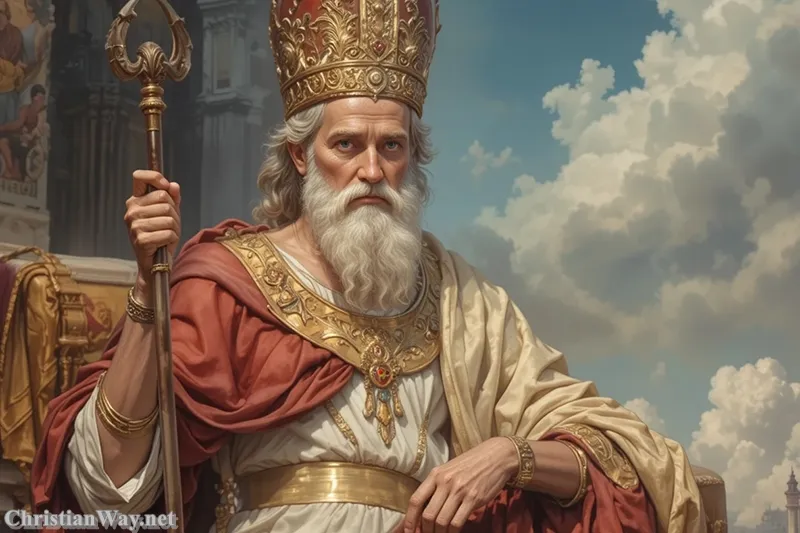Every human story is touched by death — the loss of those we love, the fear of what lies beyond, the silent question that lingers in every heart: Is this the end? Yet, into that darkness, one morning two thousand years ago, the light of heaven broke through. The stone was rolled away. The tomb was empty. And the angel’s voice declared what the world had never heard before: “He is not here, for He has risen, as He said.” (Matthew 28:6)
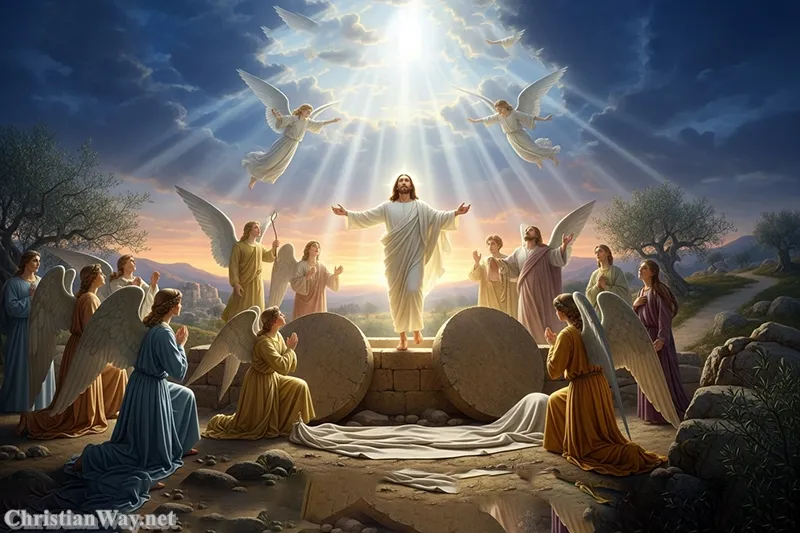
Dear friends in Christ, the Resurrection of Jesus is not merely an event from the past; it is the center of our faith, the beating heart of all Christian hope. It is the moment when life conquered death, when divine mercy triumphed over sin, and when love proved stronger than the grave. Everything we believe, every act of faith, every prayer, and every sacrament flows from this radiant truth: Jesus Christ is risen from the dead.
The Empty Tomb: A Mystery that Changes Everything
The Gospel begins its account of Easter morning in silence. Before dawn, when the world still slept, a few faithful women went to the tomb, hearts heavy with grief. They carried spices for the body of Jesus, expecting to perform a final act of love for the one they had lost. But what they found was not death, but a world remade.
The stone was gone. The tomb was empty. And where they expected stillness, they found the trembling voice of an angel proclaiming, “Why do you seek the living among the dead? He is not here; He has risen!” (Luke 24:5–6)
At that moment, the meaning of everything changed. Sin no longer had the final word. Despair gave way to hope. The world that had crucified the Son of God was now the world redeemed by His victory.
The Meaning of the Empty Tomb
The empty tomb was not a trick of history or a tale of wishful hearts. It was, and remains, the sign of God’s unbreakable promise — that death itself has been defeated. In the words of St. Paul: “If Christ has not been raised, your faith is futile and you are still in your sins.” (1 Corinthians 15:17) But because He has been raised, our faith is alive, our sins are forgiven, and our destiny is no longer the grave but eternal life in God.
The Risen Lord Appears: Encounter Beyond the Grave
The Gospels tell of many who met the Risen Jesus — each encounter unique, intimate, and transformative. To Mary Magdalene, He spoke her name and turned her tears into joy. To the disciples on the road to Emmaus, He revealed Himself in the breaking of bread. To Thomas, the doubting apostle, He showed His wounds, saying, “Do not be unbelieving, but believe.” (John 20:27)
The Personal Nature of the Resurrection
Each of these moments reveals a truth: the Resurrection is not an abstract event, but a personal encounter with the living Lord. Jesus Christ did not simply rise to prove a point; He rose to meet us — to walk beside us in our doubts, to comfort us in our sorrow, and to breathe His peace into our hearts.
When He appeared to His disciples, His first words were not of condemnation but of mercy: “Peace be with you.” (John 20:19) That peace still reaches every believer today — in our fears, our loneliness, our struggle to believe — Christ comes to us, alive and near, whispering the same words: “Do not be afraid.”
The Resurrection as the Fulfillment of Scripture
The Resurrection was not a surprise in the divine plan. Throughout Scripture, God had been preparing humanity for this moment of glory. The prophets had spoken of it; the psalms had sung of it.
“For you will not abandon my soul to Sheol, nor let your holy one see corruption.” (Psalm 16:10)
These ancient words, fulfilled in Christ, reveal that the Resurrection was the Father’s eternal design — to restore what sin had broken and to bring humanity back to life in communion with Him.
Christ, the New Adam
Through Adam came death; through Christ, the new Adam, came life. St. Paul declares: “As in Adam all die, so also in Christ shall all be made alive.” (1 Corinthians 15:22) The Resurrection, therefore, is not only about Jesus Himself — it is about the new creation He inaugurates. In rising from the dead, He begins the renewal of all things, the redemption of the human race, and the sanctification of the world itself.
The Resurrection and Our Salvation
The Victory of Love
On the Cross, Jesus bore the full weight of human sin, but in the Resurrection, that weight was lifted forever. Love proved stronger than sin, stronger even than death. What began as the darkest day in history — Good Friday — became the dawn of the world’s redemption.
When Christ rose, He did not merely return to life as before. He entered into a new mode of existence — glorified, eternal, victorious — and He invites all who believe to share in that same life. “Because I live, you also will live.” (John 14:19)
The Power of Grace in Us
Through Baptism, the power of the Resurrection becomes personal. We are “buried with Him through baptism into death,” says St. Paul, “so that, just as Christ was raised from the dead by the glory of the Father, we too might walk in newness of life.” (Romans 6:4)
This is not poetry — it is reality. Every Christian shares in the victory of the Resurrection of Jesus, not only at the end of time, but here and now. Every act of forgiveness, every triumph over temptation, every moment of faith in the midst of despair — these are the echoes of Easter within our own hearts.
The Witness of the Apostles
The first believers did not invent the Resurrection; they witnessed it. The apostles, once fearful and hidden, became fearless proclaimers of the Gospel. Something had transformed them — not a theory, but a Person.
They went to the ends of the earth declaring, “We have seen the Lord.” (John 20:25) They suffered persecution, imprisonment, and death, but never denied what they had seen. The Resurrection was not a comforting myth; it was the blazing truth that sent them into the world as heralds of the Kingdom of God.
The Resurrection in the Life of the Church
Every Sunday — the Lord’s Day — is a celebration of the Resurrection of Jesus. The Church gathers not to remember a dead hero but to worship the living Christ present among His people.
In the Eucharist, we encounter the same risen Lord who walked with the disciples on the road to Emmaus. In the breaking of the bread, He reveals Himself again. His presence is real, His life is shared, His victory is made present in every Mass.
Living the Resurrection Daily
The Resurrection is not confined to Easter Sunday. It is meant to shape every moment of our lives. To live as Christians is to live as people of the Resurrection — people who refuse despair, who choose hope over fear, and who love with the strength of the One who conquered death.
When we forgive others, when we lift up the brokenhearted, when we bring peace to places of division, we participate in the ongoing work of Resurrection. Each act of love is a small Easter in the world.
The Resurrection and the Promise of Eternal Life
The empty tomb points not only to what happened to Jesus, but to what awaits us. Because He rose, death is no longer the end. The grave has become a doorway, and beyond it lies the fullness of life with God.
Jesus said, “I am the resurrection and the life; whoever believes in me, though he die, yet shall he live.” (John 11:25) These words are not metaphor. They are the heart of Christian faith — the assurance that we too will rise, body and soul, into the glory of God’s eternal kingdom.
The Christian Hope
For believers, the Resurrection transforms the way we face suffering and death. It does not remove sorrow, but it transfigures it. We can weep, but not as those who have no hope. We can stand at the grave and still proclaim, “Christ is risen! Alleluia!”
In every funeral liturgy, the Church proclaims this hope: “Life is changed, not ended.” That is the meaning of Easter — that love endures, that the light of Christ no darkness can extinguish, that the final word belongs to God, and that word is life.
The Resurrection and the Renewal of the World
The Resurrection is not only about human destiny; it is the beginning of a new creation. As St. Paul writes, “All creation waits with eager longing for the revealing of the children of God.” (Romans 8:19) When Christ rose, the whole cosmos began to be renewed. The sun that rose on Easter morning shone upon a transformed world — one now infused with grace, hope, and divine purpose.
Every act of love, every work for justice, every moment of faith is part of that renewal. Christians are called to be “Easter people” — witnesses to the living Christ in a world still marked by death. We do not despair over the world’s wounds; we bring to them the healing light of the Resurrection.
A Faith That Transforms Everything
To believe in the Resurrection of Jesus is to believe that nothing is beyond redemption. It means that no sin is too great, no heart too broken, no night too dark. The light of Easter reaches even there.
It is the proclamation that life has meaning, that love is stronger than hatred, and that our future is not decay but glory. This faith is not naive optimism — it is courage born of divine victory. It gives strength to martyrs, hope to the suffering, and peace to those who die in Christ.
In the Light of Christ
Dear brothers and sisters, the Resurrection of Jesus is the song of eternity sung into the heart of time. It calls us to live no longer as slaves to fear but as children of the Resurrection — radiant with the hope that cannot die.
Let us carry this light into our daily lives, into our families, our work, and our communities. Let us live as people who have seen the dawn — who walk no longer in shadows but in the radiant joy of Easter.
May we each hear the voice of the Risen Lord calling our name, as He called to Mary in the garden. May His peace dwell in us, His love guide us, and His victory strengthen us until that final day when we too shall rise in His glory.
“Christ is risen, alleluia! He is truly risen, alleluia!”
May the peace of the Risen Christ dwell richly in your heart and shine through your life always.
— Fr. John Matthew, for Christian Way
